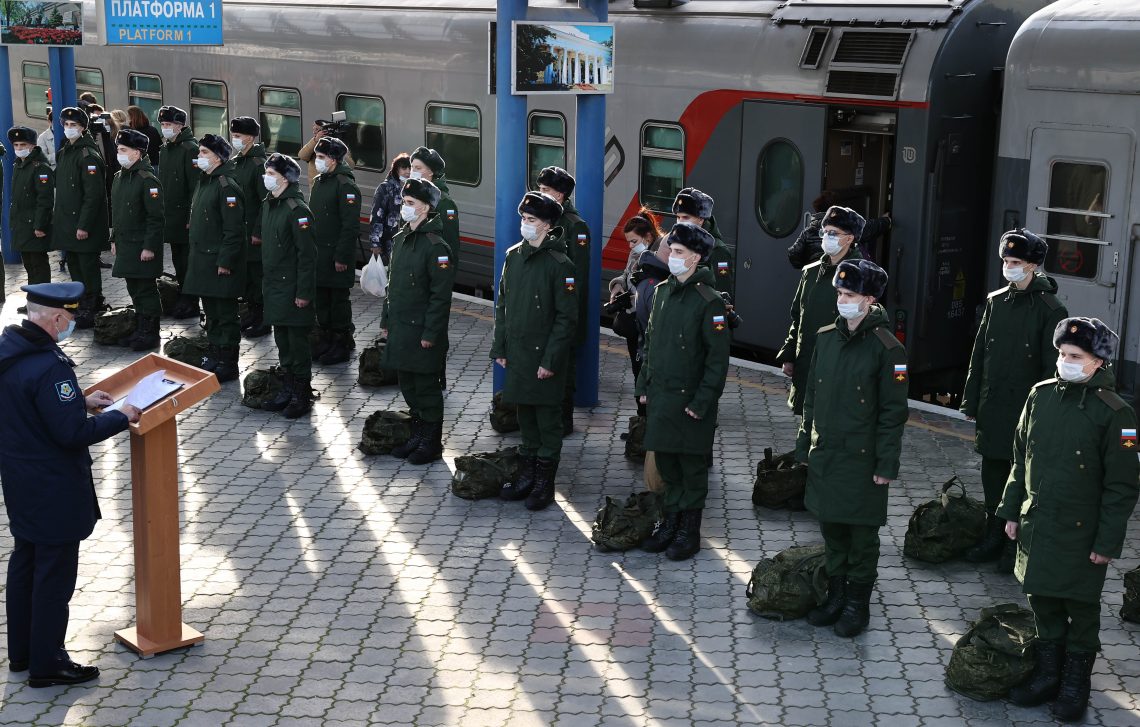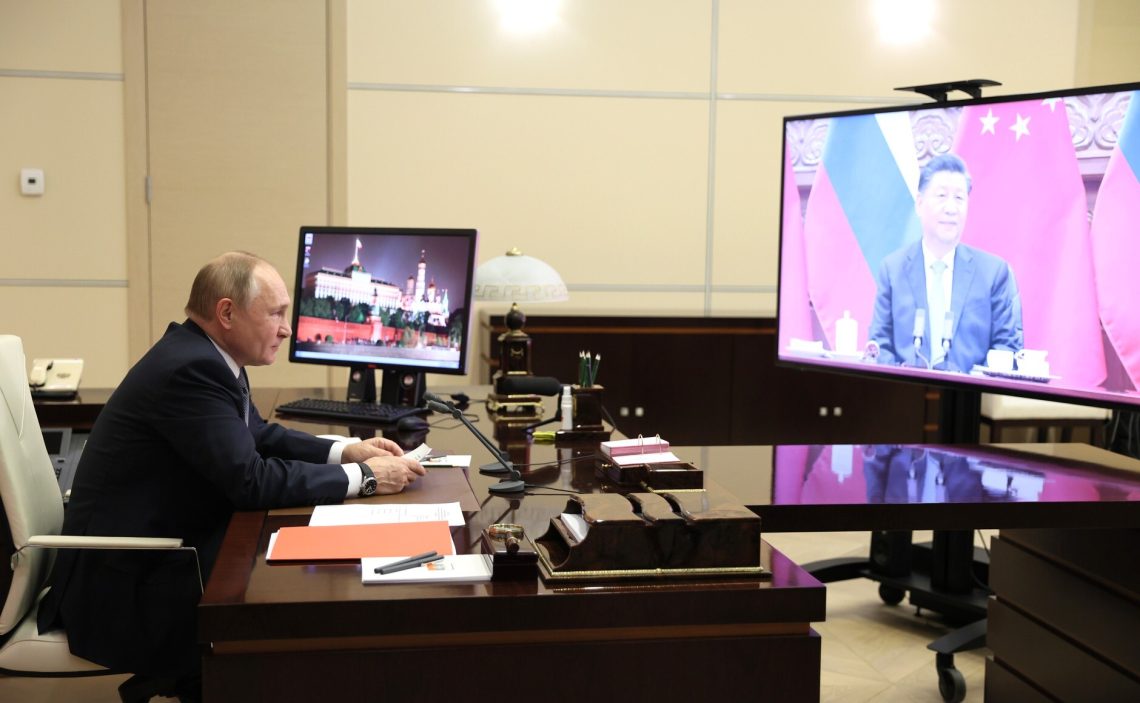Do sanctions regimes have endgames?
Sanctions cause substantial harm – not only to targeted regimes. The costs usually outweigh the benefits but rolling back sanctions proves extremely difficult.

In a nutshell
- Western sanctions policies produce little tangible effect
- Collateral damage is huge and not limited to the targeted regimes
- Ending sanctions against big powers like Russia or China is hard
In early November, relations between Belarus and the European Union further deteriorated. As the regime in Minsk deployed military force to push migrants into Lithuania and Poland, the latter responded by enhancing their military presence at the border.
When news agencies began broadcasting footage of the migrants’ plight, the knee-jerk reaction of the European Union was to impose sanctions. Whether this move was instrumental in causing the situation to de-escalate is not at issue here. Belarus strongman Aleksander Lukashenko’s decision to begin repatriating some of the migrants, and move others into a warehouse out of sight, may equally well have been the consequence of pressure from the Kremlin or of some convoluted form of bribery from Brussels.
Failure to reach objectives
The pivotal question here goes beyond what may be achieved with sanctions in the short term. It concerns whether the practice of imposing sanctions has an endgame or if sanctions, once implemented, will become a permanent fixture in international relations. The case of sanctions against China illustrates the latter.
Outraged by the 1989 Tiananmen massacre, the United States imposed an arms embargo. Key European allies followed suit, with slight modifications. More than three decades later, those sanctions remain in force. Their effect was to deprive Western arms manufacturers of an important market, which instead was captured by Russia, providing a lifeline for Russian military industries. The subsequent imposition of sanctions on Russia (in response to its 2014 aggression against Ukraine) served to bring Moscow even closer to Beijing, into a common front against the West.
The Western powers ensured that the People’s Liberation Army would become tightly involved with the Russian military.
There are three crucial lessons to learn here. The first is that the embargo was unsuccessful in preventing a Chinese military buildup. The second is that by abstaining from military cooperation with China, the Western powers ensured that the People’s Liberation Army would become tightly involved with the Russian military. And the third is that making powerful moral statements has become so important in Western political culture that the price to be paid for sanctioning China was deemed acceptable.
Collateral damage
The core of the problem for those who advocate the imposition of sanctions is that doing so will produce substantial damage – not only to the targeted regime. There will be collateral damage to international trade and economic development, and the conduct of international relations. In consequence, it becomes essential to ascertain that the benefits outweigh the costs.
Some, like the American economist Steve Hanke, have been harshly critical: “The sanctions are, of course, a mug’s game. Indeed, sanctions have almost universally failed to achieve their objectives. The one thing they do, though, is to impose real costs on many intended and unintended victims, including the international economic system.” Others, like Jeremy Greenstock, a former United Kingdom ambassador to Moscow, have preferred to adopt a more pragmatic approach, emphasizing that “there is nothing else between words and military action if you want pressure to bear on a government.” This is the essence of the predicament. Moral commitments force Western powers to sanction unacceptable behavior. Yet, in cases like China and Russia, it is recognized that words will be ineffectual, and that military action is too dangerous.
A serious discussion about sanctions would be served well by abstaining from faux claims.
Can sanctions then really be deployed in a manner that causes targeted regimes to mend their ways? In the case of Russia, sanctions have not caused the Kremlin to reverse its decision to annex Crimea. And it has not withdrawn or even admitted its presence in the war in Donbas. In that limited sense, sanctions failed to achieve their objective.
Dubious claims
Those who argue in favor of sanctions will maintain that there have been significant benefits, namely deterring Russia from escalating its aggression. It is claimed, for example, that sanctions stopped Russia from launching a full-scale invasion. The latter scenario was championed by General Philip Breedlove, at the time supreme allied commander Europe (SACEUR) of the NATO Allied Command Operations.
During the summer of 2014, the general repeatedly warned that Russia was preparing to roll across southern Ukraine from Mariupol to Odessa and onward to link up with the Russian garrison in Transnistria in Moldova. But claims that sanctions prevented this from happening suffer from two major faults.

It presumes knowledge about Russian intentions, which is a long stretch indeed. And it comes up short on realism. It was unsettling, of course, that Russia had massed some 40,000 troops on the border with Ukraine, but those troops would not have sufficed to undertake a full-scale invasion and partial occupation. A serious discussion of sanctions would be served well by abstaining from such claims.
Muddied waters
A more general problem concerns whether the sanctions have been painful enough. Given that the Kremlin has refused to mend its ways, over time it has become increasingly important to repeat the mantra that “the sanctions are biting.” While there can be little doubt that the sanctions have damaged Russian economic development, assessing the magnitude of the harm has been difficult. The reason is that the introduction of sanctions coincided with the collapse in oil prices, which was vastly more painful for Russia.
It would be possible to exclude Russia from the SWIFT payment system, which would cripple its interaction with the global economy.
The Russian side has muddied the waters even further by claiming that the sanctions have been beneficial, forcing corporations to shake out inefficiencies and become more competitive. Import substitution has also allegedly succeeded in compensating for the loss of crucial military imports from Ukraine. While these claims have been largely dubious (only in food production did these policies produce the desired effects), they have served to add confusion and embolden those in the West who argue in favor of tightening the screw.
Scenarios
Three very different developments are possible.
Pressing harder
The first, the favored approach among hardline sanctions advocates, is to keep ratcheting the punishment until the targeted regime eventually breaks. In the case of Russia, plenty more could be done to increase the pain.
It would be possible to exclude Russia from the SWIFT payment system, which would cripple its interaction with the global economy. In anticipation of this possibility, the Kremlin has attempted to join Chinese banks in building an alternative payment system, but that has not been overly successful. The same goes for the Sino-Russian ambition to displace the U.S. dollar as an international reserve currency, an aspiration that has been limited to currency swaps in the renminbi.
Excluding Russia from SWIFT was known in the early debate about sanctions as the extreme option and would still have a significant impact. The same goes for sanctioning central bank reserves. In anticipation of this possibility, the Russian Central Bank has reduced its dollar holdings, but it still has ample reserves that could be targeted.
A problem with this scenario is that experience speaks against success. While advocates of escalation like to draw parallels to the damage inflicted on Iran, they are not keen on mentioning the failure to force Tehran to give up its nuclear ambition.
Authoritarian regimes have proven ready to absorb frightening punishment when they feel that national, or more precisely, regime interest is at stake. Cuba and North Korea come to mind. In the case of Russia, the Kremlin has not been shy about referring to the legendary Russian endurance that has characterized the Russian population when faced with past hardship.
Hard nuts to crack
One may even argue that sanctions have been counterproductive, and that they have strengthened the Putin regime. The most effective part has aimed at denying Russia access to international credit markets. This restriction has caused substantial deleveraging, as Russian debtors have been unable to roll over debt. Also, it has caused the cronies of the regime to become even more dependent on the goodwill of the Kremlin to make ends meet.
Another problem with escalating the pressure until a regime break is that one cannot assume that a sanctioned regime will accept the punishment without retaliation. The case of Belarus shows that a small state with little coercive power may still develop severe asymmetric responses, such as weaponizing migrants, that cause substantial harm and dislocation.
To date, Russia has limited its response to countersanctions against food imports. Although it caused some harm to major food exporters like Finland and Poland, its main effect was to provide business opportunities for the regime’s cronies via smuggling and exploiting niches for domestic import substitution.
Looking forward, one cannot exclude that if the Kremlin decides it has been pushed too hard, it will respond more forcefully. It could, for example, escalate its military involvement in Ukraine by launching a limited campaign in the south to capture Mariupol and link up with Crimea. This scenario has surely been war-gamed by the Russian military, down to the finest detail, and there is little that NATO could do – beyond moral condemnations (and more sanctions).
A negotiated solution
Given that the imposition of sanctions was prompted by moral outrage, a negotiated way out would have significant ethical implications. One possibility could be a de facto (if not de jure) Western recognition of Russia’s annexation of Crimea, coupled with a removal of sanctions. This could lead to a withdrawal of Russian support for the rebel militias in Donbas – if Kiev accepts federalization and Russian influence over decision-making by the government in Ukraine.
While such moves would facilitate the normalization of relations between Russia and the West and likely also boost trade and investment, they would be bound to trigger strong political reactions. The Ukrainians would cry foul, and media in the West would voice outrage about appeasement and rewarding Russian aggression.
By far the most odious consequence of a climbdown is that it would allow the Kremlin to win twice. First, by getting away with its illegal annexation of Crimea and denying its involvement in Donbas. And second, by cashing in as the West drops its sanctions without having paid the price.
The combination of these implications suggests that the likelihood of a climbdown must be regarded as slim.
Business as usual
With both escalation and a climbdown ruled out, the third and most likely scenario is that of continuation of the current policy, implying that sanctions will indeed become a permanent fixture in international relations.
Those who favor a gradual but determined expansion in the practice of responding to political problems by imposing sanctions will advocate for measures that are increasingly refined in pinpointing intended targets. And they will find support in the fact that Western governments have become prisoners of their strong commitment to upholding (Western) values.
The main problem with this scenario is that it will cause an ever-deeper gulf between Russia and the West, and in the process, see Chinese President Xi Jinping laughing all the way to Taipei. The increasing importance of sanctions is also accompanied by an expanding bureaucracy with a vested interest in maintaining the status quo. Beltway think tanks that thrive on advocacy are proliferating too. As a result, sanctions will, quite simply, become the new normal in international relations, displacing the old practice of realpolitik.







